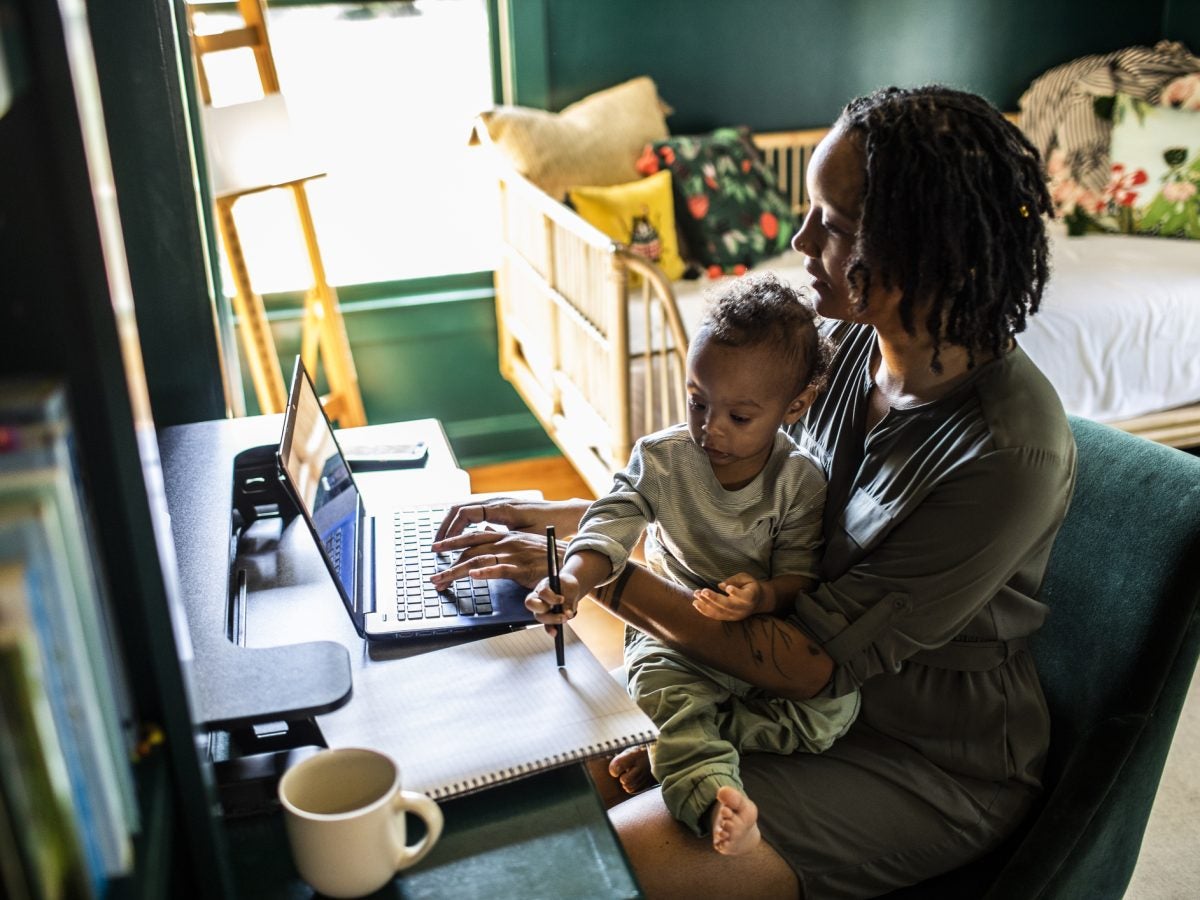
The narrative around whether women can “have it all”—balancing work and family life—gained prominence during the second wave of feminism, primarily reflecting the experiences and aspirations of White American women. This perspective fails to recognize that Black women have historically worked outside the home out of necessity, not choice, due to systemic racism and economic oppression.
The economic contributions of Black women have been essential for their families’ survival, whether they were single mothers or in households where their husbands were limited to low-wage jobs due to racial discrimination. For many Black women, the dual responsibilities of work and family have been a longstanding reality rather than a newfound challenge or symbol of empowerment.
“Black women have been doing this. We’ve been multitasking and wearing all the hats. And, in some ways, we’ve lived in a state of trauma,” said Marty McDonald. The former corporate marketing manager, turned two-time entrepreneur, CEO, wife, and mother of three, knows something about the grind.
The conversation about working mothers as a revolutionary concept within second-wave feminism overlooks the historical and ongoing experiences of Black women, who—as elucidated by scholars like bell hooks and Patricia Hill Collins—have navigated these responsibilities for generations. This historical context sets the stage for understanding the unique resilience and innovation historically required of Black women, as evidenced by rising dominance in academic, political, and business realms.
While our power is implacable, it’s also important not to tie our identities solely to our ability to labor. It’s precisely why the “soft life” movement is important. In the context of the Black American woman’s experience, embracing lifestyles where we’re not obligated to work so hard, allowing ourselves to prioritize rest, self-care, and joy, is, in itself, a revolutionary act. For Marty, a mother of three girls under the age of three, it’s about maintaining balance: “I work Monday, Tuesday, and Thursday from nine to three. I leave Wednesdays open to take the twins to appointments, and then Fridays, I leave open for myself.”
Whether we’re stay-at-home moms, working parents, or child-free, there is room for Black women in various contexts, and that’s the point. Marty has cultivated the life that she wants: “I’m creating the life that I desire for my children’s pathway to be easier. I want their struggles to be different from mine. So, we are building generational wealth for our children so they can make the choices they desire. Not based on what they have to do, but what they want to do.”
Marty McDonald’s children’s wear brand, Elle Olivia, reflects this philosophy. Designed for girls up to age 5, its black-girl-centric designs aim to inspire young ones to dream big. The line is now available at over 400 Target stores.
ESSENCE celebrates Mompreneurs who, like Marty, are choosing their passions, raising their children with intention, and redefining success on their own terms.
The Entrepreneur In Her New Mommy Era
At 27, Telsha Anderson opened a community concept boutique called T.A. in Manhattan’s Meatpacking District. Featuring a curated collection of up-and-coming and well-known designers, T.A.’s upscale online store is making waves in the fashion industry. Today, the fashion entrepreneurs and content creator adds wife and mom to her resume.
Telsha Anderson-Boone and her husband, Justin are the proud new parents to six-month-old Shepherd. It’s a shift she wholeheartedly embraces. Still, balancing between running a business and family life is not without challenges. Carving out time for rest, she said, is one of them. Telsha has learned to prioritize organization and self-care, deliberately setting aside moments for herself amid the hustle and bustle of her busy life.
The business continues to boom. Last year, T.A. teamed up with Vault by Vans to produce the ‘Pleated Petals’ sneaker, showcasing her exquisite taste for striking textures and vibrant colors with Vans’ timeless silhouette. Telsha’s transition from full time owner to momprenuer showcases the resilience and practical strategies needed to thrive as a wife, mother, and entrepreneur.
The ‘Momager’ Turned Mogul
Jonnetta Patton’s path is one of transformation and triumph. As Usher’s mother and manager, she played a pivotal role in launching his early career, serving as his manager and guiding him towards stardom. Ms. Patton is an established and formidable force in the music industry, but her ambitions didn’t stop there. In 2008, Jonnetta founded JPat Management, an independent record label and production space.
Over the years, she’s charted new courses with ventures like J’s Kitchen Culinary Incubator, a commercial kitchen space offering business training, equipment, and food packaging services for aspiring chefs. The initiative has churned out incredible chefs, giving rise to individual culinary enterprises that have enriched Atlanta’s vibrant food scene. Her latest business, film and television production company, Lion Queen Entertainment, adds to her impressive entrepreneurial legacy.
Mothers who pour themselves so fully into building their children’s dreams often struggle to find their self-identity when their children grow up. Jonnetta’s example offers a compelling illustration of what it can look like to reclaim one’s time and embrace new opportunities with courage and determination.
The Mother-Daughter Business Duo
Parent-child relationship dynamics are constantly evolving, with new milestones and challenges with each stage. For Kerry Schrader and her daughter Ashlee Ammons, the bond strengthened led to a thriving business partnership. Their startup, Mixtroz, is an app designed to alleviate the awkwardness of networking events by matching participants based on shared interests.
The idea originated from a mutual frustration with traditional networking. While immersed in New York City’s hospitality industry, Ashlee frequently attended gatherings she found unproductive. A candid conversation with her mother, Kerry, sparked an idea, and the concept for Mixttoz was born. Here’s how it works: Users register for networking events and provide details about their occupations and interests. Once at the event, they’re matched with other users with similar interests. Kerry and Ashlee’s journey illuminates the transformative potential of collaboration and innovation in surmounting common professional obstacles.
Motherhood and entrepreneurship each come with challenges and rewards. These mompreneurs occupy that intersection with excellence.